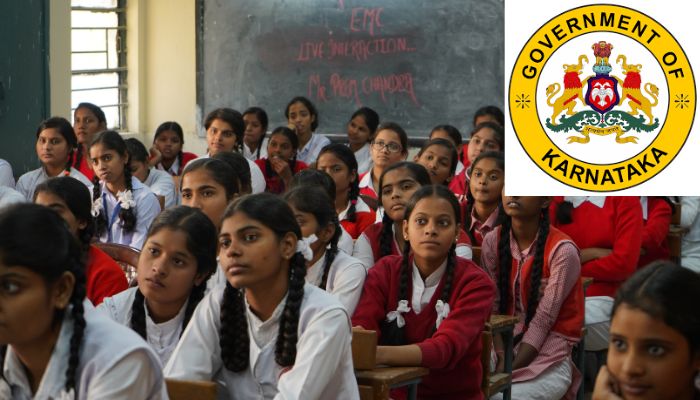Repeaters and students registered as private candidates will have to answer a 100 marks question paper.
The Karnataka government has issued a directive, in accordance with CBSE guidelines, to implement internal evaluation for subjects that do not have practical exams in the first and second pre-university (PU) academic year starting from . Previously, subjects with practical classes had a 30-mark allocation for practical exams and a 70-mark allocation for theoretical exams, while subjects without practical classes had a 100-mark annual exam. The objective of this new order is to alleviate test anxiety and stress, promote comprehensive evaluation, and ensure consistency in student performance.
As per the order, 20 marks will now be designated for internal evaluation. The evaluation criteria will involve allocating 10 marks based on the performance in the first and second unit tests and the mid-term exam, with the average of the best two scores considered. The remaining 10 marks will be based on projects, assignments, presentations, and viva voce assessments. This revised system will be applicable to core subjects such as mathematics, economics, business studies, languages, and other relevant subjects. However, the previous marking scheme of 70 marks for theory and 30 marks for practicals will continue to be followed for subjects like physics, chemistry, biology, electronics, computer science, home science, carnatic music, Hindustani music, and national skills qualification framework subjects.
The order applies to regular students who are appearing for the first and second PUC exams in the current academic year. However, repeaters and private candidates will be required to answer a 100-mark question paper. In order to pass the annual exam, students must obtain a minimum of 24 marks out of 80. In situations where a student is absent from one of the short-term exams or the mid-year exam, the marks obtained in the remaining two exams will be converted and averaged. For students who have only appeared in one of the short exams or the mid-year exam, their marks will be converted to ten and halved. Students who do not participate in any exams or fail to submit any projects or assignments must obtain at least 35 marks out of 80 to pass the annual exam.
The department will compile a list of project and assignment topics for students, and the principals of the colleges will be responsible for overseeing the internal evaluation process, ensuring accurate marking, and avoiding any confusion. If a student transfers to a different college due to unavoidable circumstances, their private study will also be considered in the internal evaluation system (20:80). The respective college principals are required to make suitable arrangements for evaluation in such cases.

